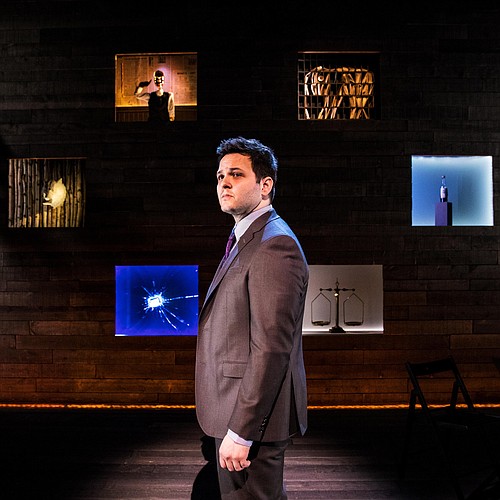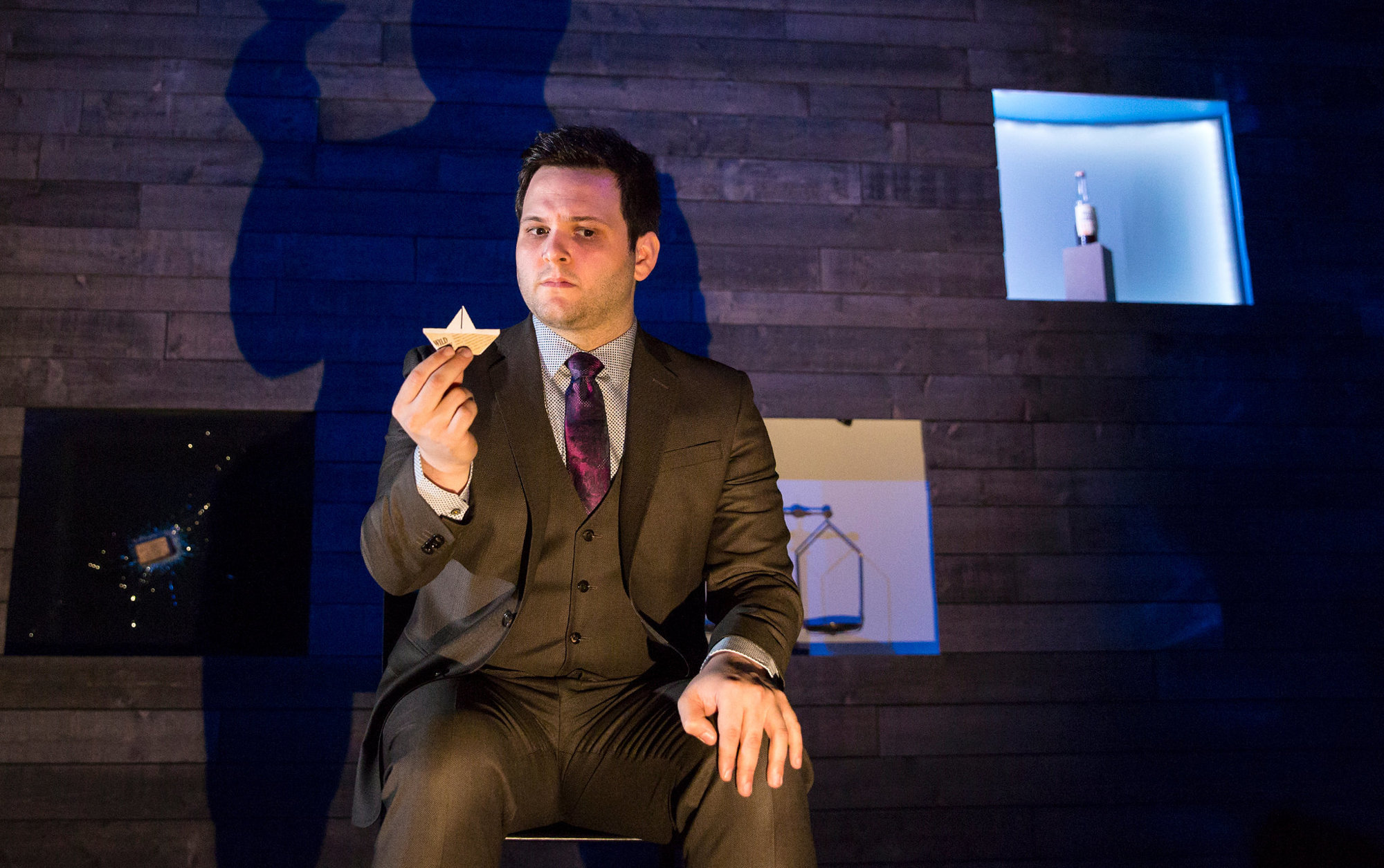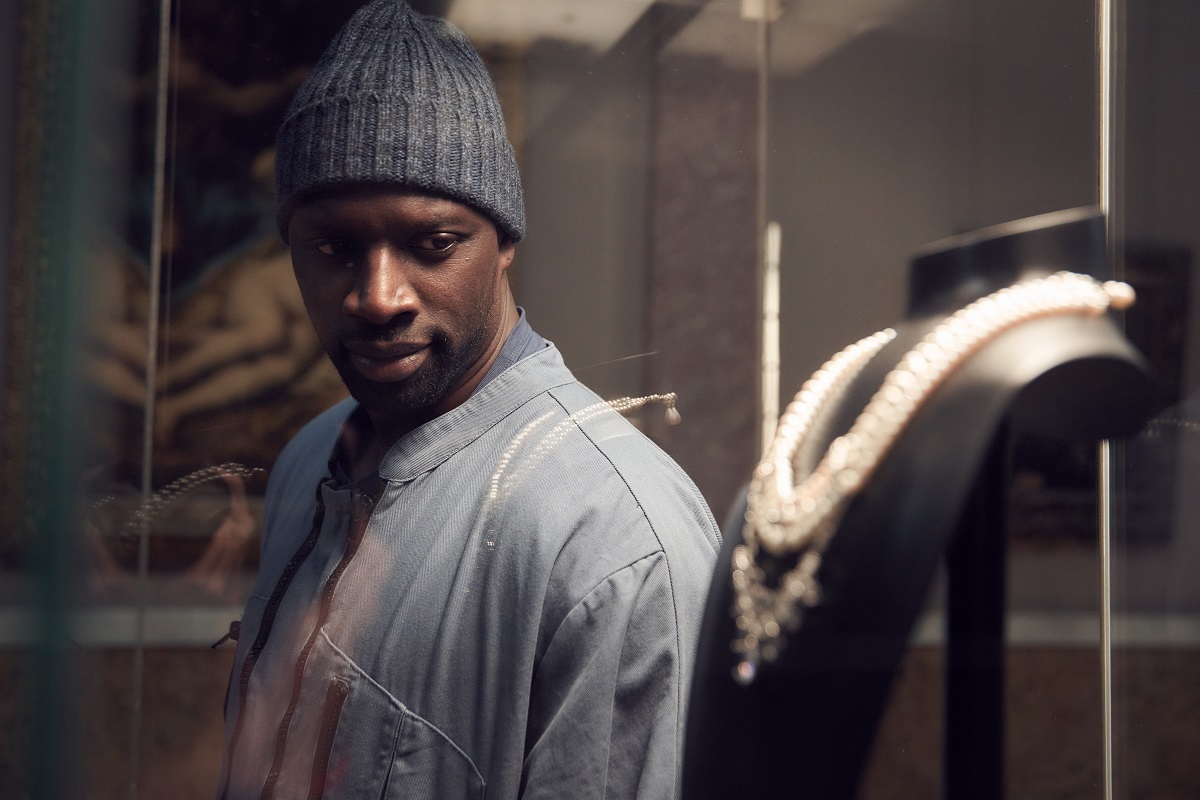- April 18, 2024
-
-
Loading

Loading

Hulu, rated TV-MA, 90 minutes

I'm not going to tell you what happens in "In & Of Itself." I debated even talking about what it is, generally, but it'll be a hard enough sell as it is, so I will.
It's a film version of the one-man show performed by Derek DelGaudio for nearly 600 nights. DelGaudio is … well, after watching the show, I'm a bit hesitant to label him anything in particular. He's complicated, and throughout the show he tells a couple different tales that deal with the person he has become. That's as far as I'm going to go, and frankly, the description I just gave for the show is like describing Apple as a cellphone manufacturer. It's accurate, but it's … not. At least, not entirely.
For as involved as the show is, for all its moving parts, everything revolves around a simple idea: Humans contain multitudes, whether other people acknowledge those multitudes or not. There is power in people seeing you the way you want to be seen.
There are moments of audience interaction during this show that baffle me. I have no idea how they happened, and I don't want to know. Because, as DelGaudio himself says at one point, things being real or fake don't matter as long as they elicit real emotions. I do know that the audience members are not plants; smartly, DelGaudio and Director Frank Oz occasionally show the same moments happening on different nights of the show's run. They all play out differently. Not only does this give the show as a whole authenticity, but it adds to its power. Each night of this show was a new experience with new revelations.
I wish I could have been in the audience for one of them. Based on audience reaction shots (of which, there are many), hardly anyone left the theater dry-eyed. Some people are so overcome with emotion that they begin shaking. They aren't reactions of sadness, I don't think. It's difficult to describe the feeling of watching the show because it's unlike much I have ever felt. I didn't sob, but I certainly had to wipe a few tears away; I can only imagine those feelings would have been amplified in a live setting, though Oz and DelGaudio do as good a job as I can imagine translating this show to the screen, sometimes using animated sequences to support his tales, sometimes using other supplemental material.
Is this making sense at all? Just watch the performance, OK? It's only 90 minutes. You might find the first 10-15 minutes a bit smug, but against all odds, DelGaudio earns it. The idea he's reinforcing is not revelatory, but it sure is powerful, and you've never seen it demonstrated like this.
Oh, and make sure to watch for the elephant. You'll know once you know.
Netflix, rated TV-MA, five episodes, 42-52 minutes each

The first thing you should know about "Lupin," the French TV series about a gentleman thief, is that it is not about Lupin, the French gentleman thief, though that Lupin's stories do feature into the show. It can be a bit confusing, so let me explain further. "Lupin," the show, is about Assane Diop, a man who lost his father (a single parent) to suicide after he was arrested for stealing a famous and valuable necklace from the rich-as-hell Pellegrini family, for whom he was working as an assistant. Assane's father claimed he was innocent; Assane believes him, and he's dedicated his life to clearing his father's name.
He does this mostly by being a gentleman thief, a passion he cultivated as a child by reading the classic tales of Arsene Lupin, France's favorite burglar. If you're unfamiliar with Lupin (the character), think of him as France's answer to Sherlock Holmes. Except, you know, committing crimes instead of solving them. He rules. Hayao Miyazaki even made a movie about him. It makes sense that an orphaned, disillusioned boy with eyes on revenge would fall in love with his ways.

The show oscillates between the present, where adult Assane (Omar Sy) finally has an opportunity to right some wrongs and support his own son, Raul (Etan Simon), and the past, where young Assane (Mamadou Haidara) learns a lot about the cruel ways that class disparity works. Assane is Black, a fact crucial to the show's conceits. Adult Assane is able to blend into any situation by changing how he dresses and presents himself; although France's elite might look at him walking down the street or working as a museum janitor, they don't see him. That's a big difference. He's also directly confronted with racist stereotypes as a child when a member of the Pellegrini family is surprised to see him in the pool; she didn't believe he knew how to swim.
As the show moves along, the mysteries surrounding the Pellegrini family deepen, and the police get on Assane's trail. The show becomes a bit like a puzzle, with clues hidden inside books and other classic tropes of the genre front and center, presented in a fresh way.
Ironically, the closest comparison I can give for "Lupin" is the BBC's "Sherlock" adaptation starring Benedict Cumberbatch, which featured hour-length episodes released in smaller batches that told a tight story. Lupin's "Part One" is five episodes long, but Netflix has already assured fans that "Part Two" is coming later in 2021. I can't wait. Despite its occasionally heavy subject matter, "Lupin" is pure fun, something we all could use more of these days.